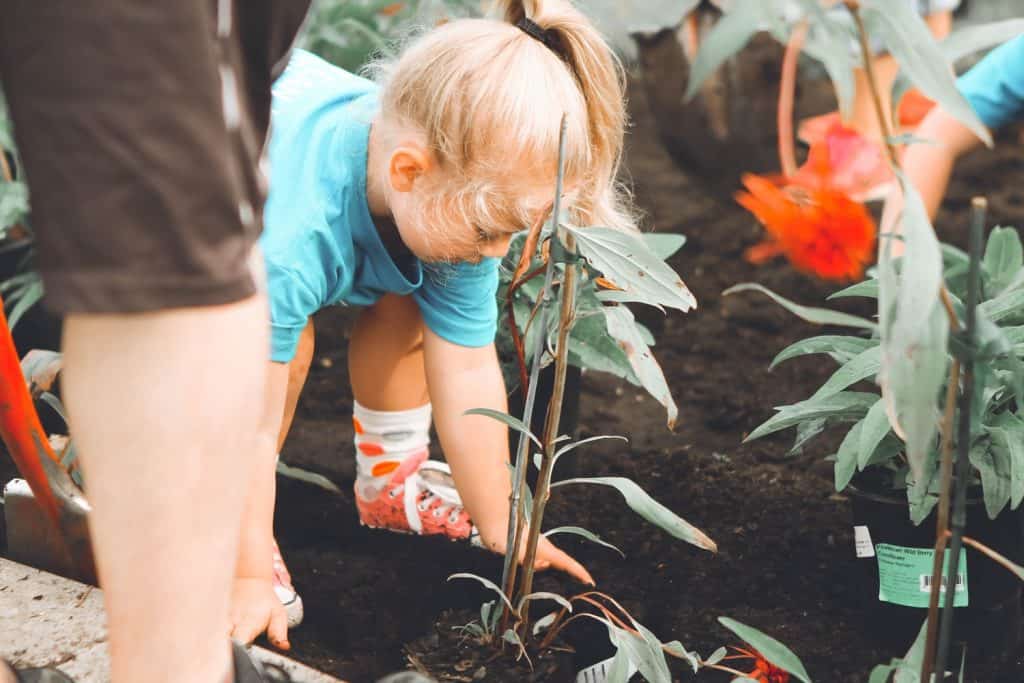Happy Earth Day! Celebrated in April every year, this holiday is a reminder to take care of the planet. One person can make a difference and, by uniting, we can all help to protect Earth against climate change.
Here is a quick explainer on what Earth Day is and how you can participate. Plus, for an excellent way to celebrate Earth Day with kids, discover 7 family-friendly recycling tips.
What is Earth Day?
Earth Day is on April 22 and was founded by Wisconsin senator Gaylord Nelson. It was first celebrated in 1970—over 50 years ago—as an international protest. Today, according to the official Earth Day website, over one billion people join together on this day to raise awareness about environmental issues.
The theme for 2021 is “Three Days of Climate Action.” Visit the Earth Day 2021 official page to find events in your community around this theme. Plus, to celebrate individually, take up the Earth Day Challenge—a 22-day event in April with eco-friendly activities.
Looking for a way to explain Earth Day and environmental awareness to your children? This informative video from astrophysicist Neil deGrasse Tyson can help.
Go Green: 7 Recycling Tips for Families
Learning how to recycle is a great way to celebrate Earth Day and do your part to care for the planet. Use these seven eco-friendly recycling tips to get started.
1. Learn what can and cannot be recycled.
Did you know that not all paper and plastics can be recycled? According to On Better Living, the following are items that people often try to recycle but many centers cannot process:
- Food
- Foam
- Single-use utensils, paper plates, napkins, or paper towels
- Batteries and electronics
- Plastic bags
- Clothing
To find local centers so you can learn their individual guidelines, try this Recycling Center Search from Earth 911.
2. Donate instead of throwing away old belongings.
Recycling is more than just keeping trash out of landfills. It can also involve finding new homes for items you no longer need instead of throwing them away.
Next time your family needs to get rid of an item that can be reused, bring it to a nearby thrift store. You can also check if any local non-profits or shelters take donated items.
3. Limit your purchase of single-use items.
Because many recycling centers won’t accept single-use utensils, Recycle Across America suggests using them as little as possible. That way even if you can’t recycle things, you’re helping the environment by using fewer of them.
4. Recycle food scraps by composting.
It’s true that you can’t bring leftover food to recycling centers, but you can compost it if you have a garden. Check out this video on making your own composter from PBS Kids to get started:
5. Avoid “wishcycling.”
“Wishcycling” is a term used by recycling centers to describe when people bring in items they know are non-recyclable in the hopes that they will slip by. While well-meaning, this can contaminate entire loads of materials according to the official Earth Day website.
If you know an item cannot be recycled at your local center, do not add it to your load. Instead, either find a center that does accept your item or consider buying less of that item in the future.
6. Remember to clean items before recycling them.
If an item still has food or other substances inside, it can contaminate other items and make them un-recyclable. The Student Conservation Association (SCA) recommends cleaning out dirty items beforehand to prevent this.
7. Make recycled crafts with your family.
If you can’t bring something to a recycling center, you may still be able to transform it into something useful. Crafts that reuse and recycle old things can make for a valuable family activity.
This round-up of recycled crafts you can make as a family has plenty of activities to get you started.
These seven tips are sure to help your little ones reduce, reuse, and recycle. For more ideas, check out our free guide on conservation and preventing pollution as a family.

